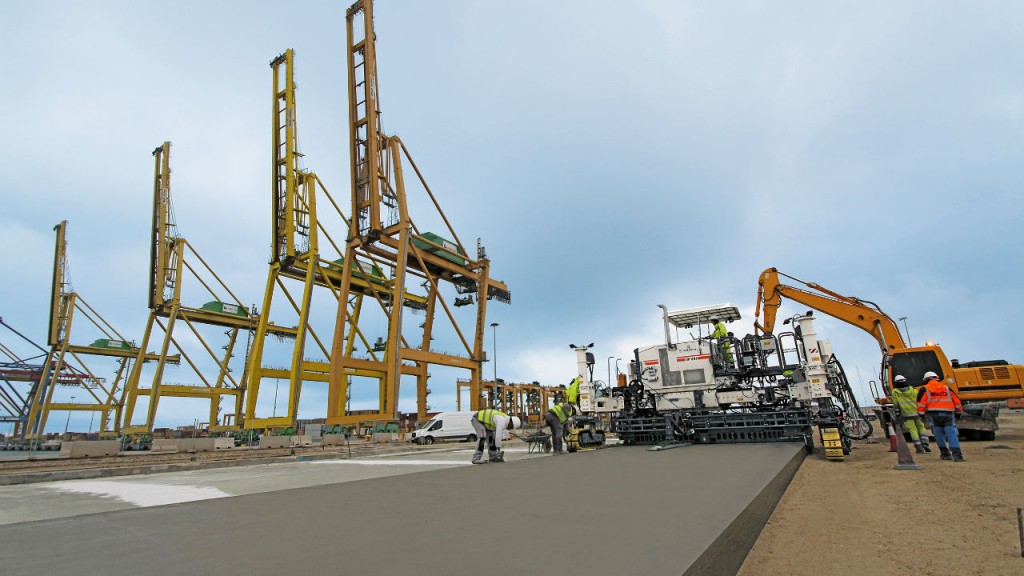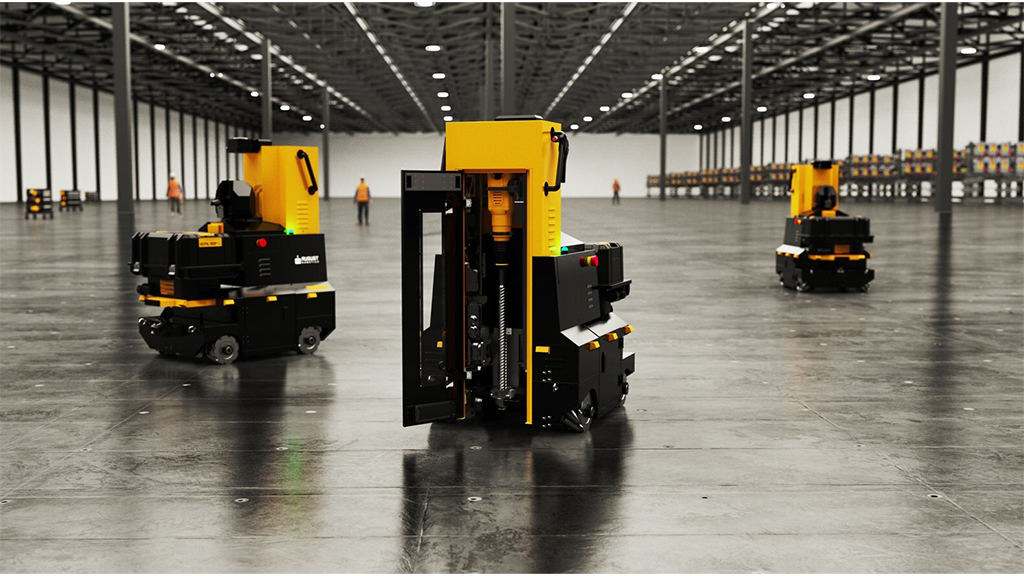
Wirtgen's latest slip form paver the SP 60i series replaces the SP 500 – and opens up new possibilities for contractors. Thanks to its versatility in inset and offset applications, the SP 60i series is the new multi-talent for concrete paving. With its SP 61i, SP 62i and SP 64i models, Wirtgen has developed a new generation of slipform pavers that combines the diverse applications of the globally successful SP 500, with the state-of-the-art technologies of the next larger SP 90i series.
As part of its modification measures to comply with new emissions laws, Wirtgen has equipped the SP 60i series with greater engine output. The SP 60i-series meets EU Stage 4 and US Tier 4 Final emissions specifications have a 241 hp (180 kW) Deutz engine, with about 40 percent more power than the SP 500 (+20 percent at EU Stage 3a/US Tier 3). Despite the higher output, fuel consumption is sustainably reduced by the exclusive Wirtgen Eco mode, which automatically adapts engine output to power requirements.
New concept in hydraulic technology
More features than ever operate hydraulically in the SP 60i series. Thanks to a new hydraulic concept, energy is now used much more efficiently, making it available for new equipment options, for example, trimmers and a large delivery screw for offset applications, or the four swivel arms used to switch the machine from transport to working mode faster. The system starts as a basic version, and grows along with the number of modular equipment options selected. Customers save by choosing only the options they want.
Intelligent systems control technology
Likewise, the intelligent machine control systems in Wirtgen's slipform pavers are state-of-the-art. Interfaces for the Wirtgen Group's WIDIAG service diagnosis and WITOS FleetView systems support users, as does the optional Paving Plus package. Combined with this package, the swivel arms can actively circumnavigate obstacles during the concrete paving process.
The option of hydraulic rotational drives, available for all SP 60i series models, provides even better maneuverability. With hydraulic rotational drives, the 90° or 120° steering angle of the crawler tracks becomes a major advantage, for example when setting up the machine at a job site.
Uniform operating and control concept
Various features make the machines both simple and flexible to operate: a walkway that now extends across the full width of the machine for the first time, plus a standardized operating and control concept like that in the SP 90 series, comprises a central control system and four additional local control systems as standard. Intelligent interfaces support the plug-and-play connection of additional options. For example, remote controls can be connected to each of the crawler tracks to simplify and speed up setup of the slipform paver, such as the positioning and zeroing of the crawler tracks and swivel arms.
Inset and offset mold systems
Like the modular system for the SP 94i and SP 92i, customers can now choose between different slipform systems for inset paving.
The slipform molds are fully compatible with the SP 90i series. The SP 64i (four crawlers on swivel arms) and SP 62i (two crawlers with track steering) can pave concrete in widths of up to 25 ft. (7.5 m) and thicknesses of up to 18 in. (450 mm) or more on customer request
Also available are various offset molds and a variety of typical offset options, such as trimmers, different conveyor belts or augers. The three- or four-crawler version of the offset SP 61i can slipform medium to large concrete profiles to the left or right of the machine. Contours of almost any shape – roadway edging, concrete safety barriers, water gullies and paths up to 12 ft. (3.6 m) wide – can be produced cost-efficiently and in high quality Thanks to their increased stroke, the lifting columns can now be raised up to 44 in. (1,100 mm), and have 17 percent more power than in the SP 500. This gives the user much greater flexibility, particularly in tight job site situations, for instance when lifting a slipform for a concrete safety barrier. Thanks to its higher power reserves, it can now handle heavier offset slipform molds to expand its range of applications.
Company info
6030 Dana Way
Antioch, TN
US, 37013
Website:
wirtgen-group.com/en-us
Phone number:
615-501-0600



